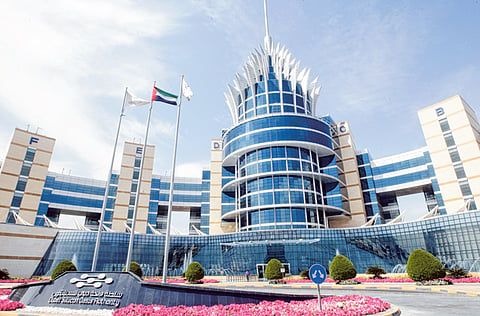Dubai Silicon Oasis widens venture funding scope
DSO sees tech funding as integral to operations

Dubai: Dubai Silicon Oasis (DSO) plans to widen the scope of its venture capital programme and bring in specialist partners who could provide additional funds into the seeding process. It was in 2012 that DSO kickstarted the venture funding initiative and now sees the time as right for a serious upgrade.
Access to funding has improved for tech entities in the last two years. Such support has come in from private equity players within the region as well as, in the case of some of the e-commerce portals, from overseas majors as well. But a top DSO official said sighting the funds can still be a steep hurdle.
“For a regional start-up or even a business in the early phase of its operations, raising funds has never been easy and it’s the case even now with a few exceptions — but this is where we see a lot of potential to go in for carefully vetted businesses and deploy funds that would eventually benefit all stakeholders,” said Dr Mohammad Al Zarouni, vice-chairman and CEO at Dubai Silicon Oasis Authority. “We will soon be formally announcing details of the expanded scope of the VC programme.”
It was in the mid-2000’s that DSO first made a pitch to get active in such a programme. “But it would be more realistic to say that we got seriously active two years ago,” said Al Zarouni.
As of now, it has stakes in Quodoba, a tech firm specialising in translation services, and Nabbesh, conceived as a marketplace for consultants and the self-employed.
“As is standard practice in the VC space, our exposure is limited to a minority stake, of between 5 to 20 per cent; it’s for the founders of the business to chart how they want to grow it,” said Al Zarouni. “But we will have an active role in helping the business achieve its targets or ease their access to target marketplaces.”
As to DSO’s exit strategy when a business achieved scale, Al Zarouni said: “It’s too early into our own VC programme to talk about exits — we will follow industry best-practices when it reaches that point, and that would ideally mean a three- to four-year investment timeframe.”
Master-development
There is also an incubation programme that DSO is engaged in, for those businesses in the launch or immediate post-launch phase. “We opened our incubator in late 2012 and have actively supported four companies with financial incentives and more than 180 entrepreneurs with support and mentorship.”
The venture capital and incubation are the little known sides of DSO, which is more known for its status as an up and coming master-development off the Dubai-Al Ain highway. Already, more than 40,000 live or work daily within that cluster.
“But DSO was conceived as being a facilitator of high-technology, and while the real estate is an emerging success story, we have not lost focus on developing the technology park to full potential,” the CEO said.
“There are global companies in R&D [research and development] that would be an obvious fit for the tech park — many are interested but the nature of such businesses are they will drive hard negotiations before coming in. They would want incentives, we are willing to provide these but will never cross any limits.
“If we had opened the park to all categories of the tech industry, we could have filled up the park in less than two years. That’s not the way we want to get ahead — our focus is on a certain kind of technology company and hi-tech at that.”
Outside of the tech park and within its office buildings, DSO has attracted a broad mix of overseas tenants; 38 per cent are European firms, 16 per cent are from Asia and 7 per cent are US firms. Another 26 per cent are entities from within the region.
“With Expo 2020, our prospects of attracting real tech businesses to the tech park have just got better,” said Al Zarouni.


